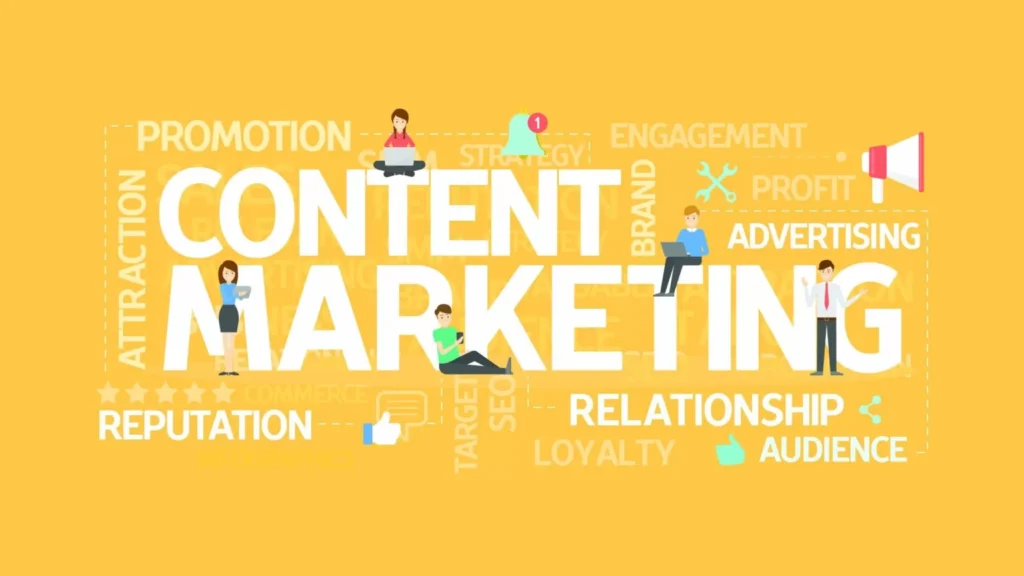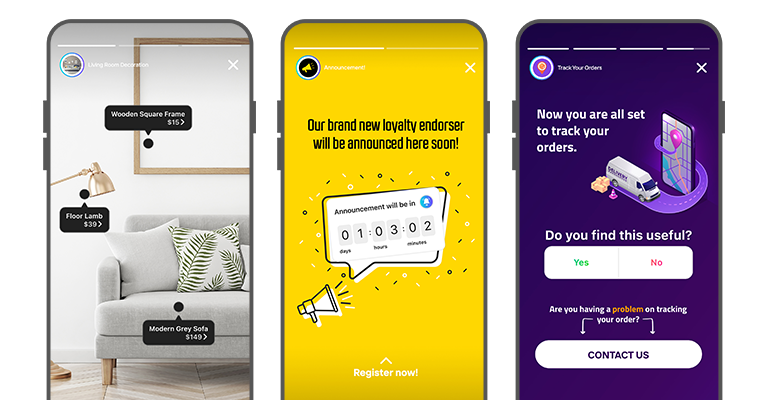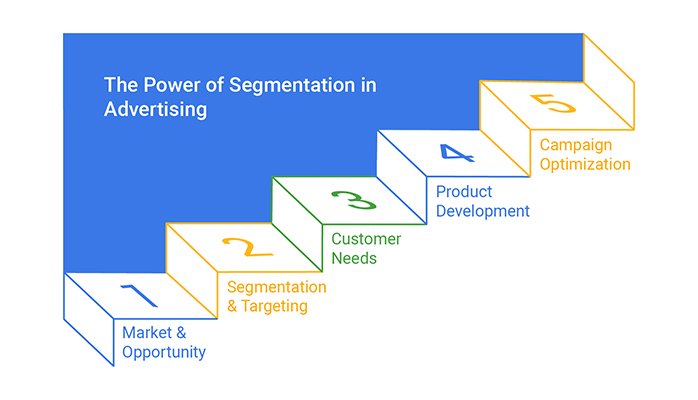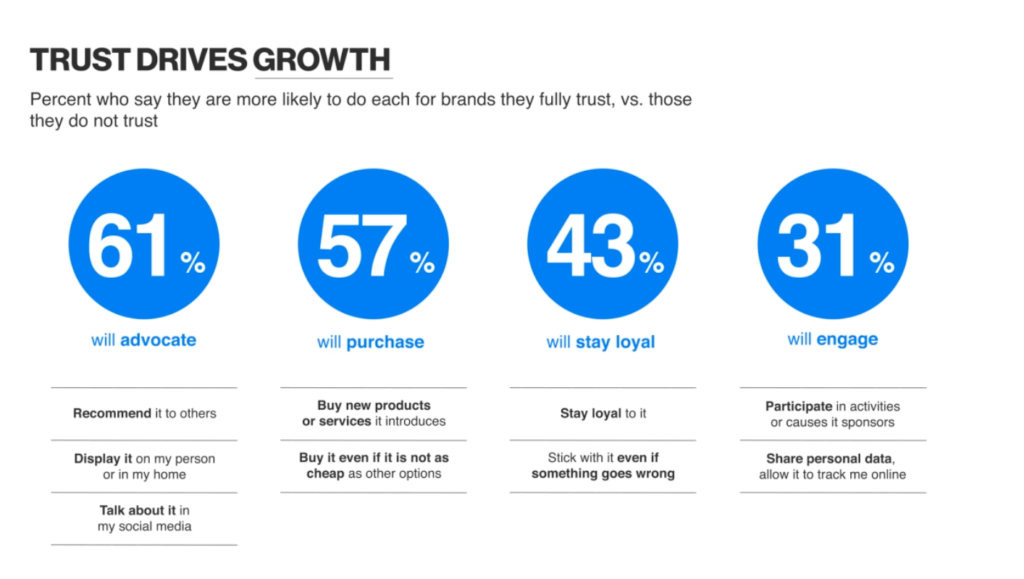Introduction

A. Definition of Content Marketing:
Content marketing is the process of creating and distributing valuable, relevant, and consistent content in order to attract and engage a specific audience. This content can take many forms, such as articles, blog posts, videos, infographics, podcasts, and social media posts.
B. Importance of Content Marketing in Today’s Digital Landscape:
In today’s digital landscape, where consumers are inundated with advertisements and information, content marketing has emerged as an essential strategy for businesses to connect with their target audience. Here’s why it’s important:
A. Empowering Consumers:
With the rise of the internet and social media, consumers now have more control over what information they consume. They actively look for content that teaches, entertains, or solves their problems. Businesses can meet this demand through content marketing by providing valuable content that resonates with their target audience.
B. Building Trust and Credibility:
Traditional advertising methods are often perceived as salesy and self-promotional. In contrast, content marketing focuses on providing value to the audience rather than directly selling. Businesses that consistently deliver useful and informative content can gain trust and establish themselves as authoritative voices in their industries.
C. Enhancing Brand Awareness:
Content marketing enables businesses to demonstrate their expertise, personality, and values. Businesses can increase brand visibility and reach a larger audience by telling compelling stories and creating engaging content. As consumers become more acquainted with a brand through its content, they are more likely to consider it when making purchasing decisions.
D. Adapting to Changing Consumer Behavior:
The way people research and shop for products and services has changed dramatically. Consumers rely heavily on digital channels throughout the purchasing process, from online product research to social media recommendation searches. Content marketing allows businesses to meet customers where they are and deliver relevant content at the right time to guide them through the purchasing process.
E. SEO and Organic Discovery:

Content marketing is essential for improving a company’s search engine optimization (SEO) efforts. Businesses that create high-quality, relevant content can attract organic traffic to their website, improve their search engine rankings, and ultimately drive more leads and sales.
F. Cost-Effective Marketing:
Content marketing is often less expensive than traditional advertising methods like television commercials or print ads. While creating high-quality content takes time and resources, the long-term benefits can far outweigh the initial costs. Furthermore, content can continue to generate leads and drive sales for months or even years after it has been published. To summarize, content marketing has evolved into an essential strategy for businesses seeking to thrive in today’s digital world. Businesses that provide valuable content can attract, engage, and retain customers, resulting in growth and success.
2. Building Trust and Credibility
Traditional advertising methods frequently bombard consumers with promotional messages, fueling skepticism and distrust. Content marketing, on the other hand, takes a different approach, emphasizing value creation and audience relationship building. Here’s how content marketing can help businesses build trust and credibility:
A. Authenticity:
Content marketing enables businesses to express their true voice and personality. Businesses can humanize their brand and connect with customers more personally by sharing stories, insights, and expertise. Authentic content engages audiences and builds trust by demonstrating transparency and sincerity.
B. Educational Value:
Content marketing allows businesses to educate their target audience on industry-related topics. Businesses can position themselves as experts in their field by sharing valuable information and insights. When consumers come across content that answers their questions or solves their problems, they are more likely to trust the source and regard the company as a credible resource.
C. Consistency:
Consistency is essential for building trust through content marketing. Businesses can demonstrate their commitment to their audience by consistently delivering high-quality content. Regularly publishing valuable content keeps the brand top of mind and strengthens its expertise over time. Consistency also contributes to a loyal following, as audiences come to rely on the brand for valuable insights and information.
D. Engagement and Interaction:
Content marketing promotes engagement and interaction between businesses and their audiences. Content, whether in the form of comments, shares, or likes on social media, allows the brand and its customers to communicate in both directions. Businesses that actively engage with their audience demonstrate that they value feedback and are responsive to their customers’ needs, which builds trust and credibility.
E. Customer Testimonials and Case Studies:

Customer testimonials and case studies in content marketing can help build trust by displaying real-life examples of satisfied customers and successful outcomes. Hearing from other customers who have had positive experiences with the brand increases credibility and assures potential customers that they are making the right decision.
In conclusion, content marketing is an effective tool for establishing trust and credibility with your target audience. Businesses can establish themselves as trustworthy industry experts by providing authentic, educational, and consistent content, resulting in stronger customer relationships.
3. Enhancing Brand Awareness
In today’s crowded digital landscape, capturing and maintaining consumers’ attention is more difficult than ever. Content marketing is an effective tool for businesses to increase brand awareness and visibility. Here’s how content marketing can increase brand awareness:
A. Storytelling:
Effective storytelling is a key component of content marketing. Businesses can capture audiences and leave a lasting impression by creating compelling brand narratives. Storytelling enables brands to communicate their mission, values, and unique selling propositions in a memorable and engaging manner, thereby helping to differentiate them from competitors and increase brand recognition.
B. Multichannel Presence:
Content marketing allows businesses to reach audiences through a variety of channels and platforms, including websites, social media, email newsletters, and more. Businesses that diversify their content distribution strategy can increase their reach and exposure, ensuring that their brand remains top-of-mind wherever their target audience is.
C. Visual and Interactive Content:

Visual and interactive content, such as videos, infographics, quizzes, and interactive guides, can be extremely effective at capturing audience attention and increasing brand awareness. These types of content are inherently more engaging and shareable, making them valuable tools for increasing brand visibility and reaching new audiences.
D. Consistent Branding:
Consistency is essential for increasing brand awareness. Content marketing enables businesses to strengthen their brand identity by using consistent messaging, tone of voice, and visual elements across all content channels. Businesses that maintain a consistent brand image can build familiarity and recognition among their target audience, increasing the likelihood of brand recall and association.
E. Thought Leadership:
Content marketing enables businesses to showcase their industry expertise and thought leadership. Businesses that share valuable insights, trends, and best practices within their niche can position themselves as authoritative voices and go-to resources for their target audience. Thought leadership content not only increases brand credibility, but also attracts new followers and subscribers looking for expert advice.
F. User-Generated Content:
Encourage user-generated content, such as customer reviews, testimonials, and user-generated media, to help raise brand awareness. User-generated content not only provides authentic social proof, but it also expands the brand’s reach by tapping into the networks of satisfied customers and brand advocates.
To summarize, content marketing improves brand awareness by leveraging storytelling, multichannel presence, visual and interactive content, consistent branding, thought leadership, and user-generated content.
4. Improved Customer Engagement
In the digital age, where consumers are bombarded with information and options, cultivating meaningful interactions with your target audience is critical for developing long-term relationships and driving business growth. Content marketing provides unique opportunities to engage with customers in ways that traditional advertising cannot. Here’s how content marketing increases customer engagement:
A. Tailored Content for Target Audiences:
Content marketing enables businesses to create personalized and relevant content based on the interests, needs, and preferences of their target audiences. Businesses can create content that resonates with specific customer groups by understanding their demographics, behaviors, and pain points. This leads to increased engagement and interaction.
B. Interactive Content Formats:
Quizzes, polls, surveys, contests, and interactive videos are examples of interactive content that encourages audience participation, resulting in increased engagement. These interactive formats not only grab users’ attention, but also invite them to engage with the brand on a deeper level, instilling a sense of involvement and ownership in the content experience.
C. Social Media Engagement:
Social media platforms offer valuable opportunities for businesses to interact with their target audience in real time. Content marketing on social media entails creating and sharing content that sparks conversations, encourages likes, shares, and comments, and fosters community around the brand. Businesses can improve brand loyalty by actively engaging with followers, responding to comments, and participating in relevant discussions.
D. Educational and Informative Content:
Providing educational and informative content allows businesses to establish themselves as reliable sources of information in their industry. Content that answers common questions, offers how-to guides, tips and tricks, or shares valuable insights demonstrates the brand’s expertise and commitment to assisting customers in solving their problems. Businesses that provide value through content can build a loyal and engaged audience that returns for more.
E. Call-to-Action (CTA) Integration:

The strategic placement of clear and compelling calls-to-action (CTAs) within content promotes audience engagement and directs them to desired actions, such as signing up for a newsletter, downloading a resource, or making a purchase. Businesses can increase conversions and customer engagement at all touchpoints by incorporating relevant CTAs throughout their content marketing efforts.
F. Feedback and Listening:
Content marketing allows businesses to gather feedback and insights from their audience. Businesses can gain valuable insights into customer preferences, pain points, and behaviors by actively listening to and monitoring customer feedback, as well as analyzing engagement metrics. This feedback loop allows businesses to constantly improve their content strategy and better meet the needs of their audience over time.
To summarize, content marketing improves customer engagement by delivering personalized content, utilizing interactive formats, encouraging social media interactions, providing educational value, incorporating clear CTAs, and actively listening to customer feedback. Businesses can create brand advocates and drive long-term success by focusing on engagement and making meaningful connections with their audience.
5. Generation of Qualified Leads
Lead generation is critical for long-term business growth, and content marketing is an effective strategy for attracting and nurturing qualified prospects. Businesses can capture the attention of potential customers by providing valuable content that addresses their needs and interests. Here’s how content marketing helps generate qualified leads:
A. Gated Content Offers:
Gated content, which includes ebooks, whitepapers, webinars, and case studies, provides valuable resources to website visitors in exchange for their contact information. Businesses can capture genuinely interested leads by creating compelling gated content that addresses specific pain points or provides in-depth solutions.
B. Lead Magnets and Opt-in Incentives:
Lead magnets, such as free trials, discount codes, and exclusive access to resources or events, encourage website visitors to provide contact information and consent to future communications from the company. Businesses can attract qualified leads who are more likely to engage and convert by providing valuable incentives that match the needs and motivations of their target audience.
C. Content Upgrades and Email Capture:
Content upgrades, such as bonus materials, checklists, templates, or additional insights, increase the value of blog posts or articles and encourage readers to join the company’s email list. Businesses that capture email addresses through content upgrades can nurture leads over time using targeted email campaigns and personalized communications.
D. Segmented and Targeted Content Campaigns:

By segmenting their audience based on demographics, behaviors, or interests, businesses can deliver targeted content campaigns that resonate with specific customer segments. By tailoring content to each audience segment’s specific needs and preferences, businesses can attract higher-quality leads who are more likely to convert into customers.
E. Lead Nurturing through Content Funnels:
Content funnels help leads navigate the buyer’s journey by providing relevant content at each stage, from awareness to consideration to decision-making. Businesses can foster relationships, build trust, and ultimately drive conversions by providing educational and persuasive content that addresses leads’ changing needs and concerns.
F. Tracking and Analytics:
Businesses can use tracking tools and analytics platforms to monitor the performance of their content marketing efforts and determine which content assets generate the most leads and conversions. Businesses can improve the effectiveness of their content strategy by analyzing key metrics such as website traffic, conversion rates, and lead quality. If you want to learn more about Analytics you can visit our blog Digital Marketing Analytics – The Essentials You Need to Know
To summarize, content marketing is an effective tool for generating qualified leads by providing gated content, lead magnets, content upgrades, targeted campaigns, lead nurturing funnels, and analytics-driven optimization. Businesses can create a pipeline of qualified leads that drive long-term growth and success by strategically using content to attract and engage potential customers.
6. Cost-Effectiveness
In today’s competitive business environment, maximizing return on investment (ROI) is critical to long-term success. Content marketing has significant cost advantages over traditional advertising methods, making it a viable option for businesses of all sizes. Here’s how content marketing can be cost-effective:
A. Lower Cost Per Lead (CPL):
When compared to traditional advertising methods like print ads or television commercials, content marketing typically has lower costs per lead. By creating and distributing content online, businesses can reach a larger audience for a lower cost, resulting in a lower CPL and higher ROI.
B. Reduced Advertising Spend:
Unlike traditional advertising, which frequently requires a significant upfront investment for ad placements, content marketing is based on owned media channels such as websites, blogs, and social media platforms. Businesses that use owned media can reduce their reliance on paid advertising and allocate resources more efficiently to content creation and distribution.
C. Long-Term Benefits of Evergreen Content:

Unlike traditional advertisements, which have a limited lifespan, content marketing assets like blog posts, videos, and ebooks can continue to attract and engage audiences long after they are published. Evergreen content, in particular, remains relevant and valuable over time, generating leads and driving traffic to the company’s website without requiring ongoing advertising spend.
D. Search Engine Optimization (SEO) Benefits:
Content marketing is critical for increasing a company’s organic visibility and search engine rankings. Businesses can increase the authority and relevance of their website in search engine results pages (SERPs) by publishing high-quality, keyword-optimized content on a regular basis, resulting in more organic traffic and less reliance on paid advertising.
E. Amplification through Social Sharing:
Social media platforms offer businesses free or low-cost ways to expand their content reach through social sharing. Businesses can use social media to increase brand visibility, drive website traffic, and generate leads without spending any more money on advertising.
F. Measurable Results and Optimization:
Content marketing provides robust tracking and analytics capabilities, allowing businesses to assess the success of their content campaigns and optimize their strategies for maximum effectiveness. By analyzing key metrics such as website traffic, engagement rates, and conversion rates, businesses can identify areas for improvement and better allocate resources to achieve their marketing goals.
To summarize, content marketing is more cost-effective than traditional advertising methods because of lower CPL, lower advertising spend, long-term benefits of evergreen content, SEO benefits, social sharing amplification, and measurable results and optimization. Businesses that invest in content marketing can achieve higher ROI and long-term growth in the digital age.
7. Higher Conversion Rates
Conversion rates are an important metric for determining the effectiveness of marketing campaigns. Content marketing is critical for increasing conversion rates because it guides prospects through the buyer’s journey and persuades them to take the desired actions. Here’s how content marketing improves conversion rates:
A. Targeted Content for Each Stage of the Buyer’s Journey:

Content marketing allows businesses to create content that is tailored to prospects’ specific needs and interests at each stage of the buyer’s journey, including awareness, consideration, and decision-making. Businesses can nurture leads and move them closer to conversion by providing relevant and informative content that addresses their pain points and concerns.
B. Building Trust and Credibility:
High-quality content that adds value and solves problems can help businesses build trust and credibility with their target audience. When prospects perceive a brand to be knowledgeable and trustworthy, they are more likely to engage with its content and eventually become customers.
C. Educational Content that Drives Informed Decisions:
Content marketing provides prospects with the information they need to make informed purchasing decisions. Businesses can remove conversion barriers and facilitate decision-making by providing educational content that highlights the benefits and features of their products or services, addresses common objections, and compares alternatives.
D. Clear Calls-to-Action (CTAs):
The strategic placement of clear and compelling calls-to-action (CTAs) within content encourages prospects to take the next step in the conversion process, such as signing up for a newsletter, downloading a resource, or making a purchase. Well-designed CTAs that are contextually relevant and provide clear value propositions increase conversion rates.
E. Personalization and Segmentation:
Content marketing enables businesses to personalize content based on prospect demographics, behaviors, and preferences. Businesses can increase relevance and engagement by segmenting their audience and delivering targeted content that directly addresses their needs and interests, resulting in higher conversion rates.
F. Optimization through Data Analysis:
Content marketing provides robust tracking and analytics capabilities, allowing businesses to evaluate the effectiveness of their content campaigns and optimize for higher conversions. Monitoring key metrics such as click-through rates, conversion rates, and engagement levels allows businesses to identify areas for improvement and implement data-driven strategies to increase conversion rates over time.
In summary, content marketing helps to increase conversion rates by delivering targeted content, establishing trust and credibility, empowering informed decision-making, incorporating clear CTAs, personalizing content, and optimizing through data analysis. Businesses can drive conversions and achieve their marketing goals more effectively by aligning content with prospects’ needs and preferences and guiding them through the conversion journey.
8. Increased Customer Loyalty
Developing a base of loyal customers is critical for long-term business growth and profitability. Content marketing is essential for strengthening customer relationships and increasing brand loyalty. Here’s how content marketing helps increase customer loyalty:

A. Providing Ongoing Value:
Content marketing enables businesses to provide ongoing value to their audience by consistently delivering relevant, informative, and entertaining content. Businesses can strengthen their customer relationships and keep them engaged over time by consistently meeting their needs and interests via valuable content.
B. Creating Emotional Connections:
Engaging storytelling and authentic content can elicit emotions and foster a sense of connection between a brand and its customers. Businesses can foster deeper emotional connections with their audiences by sharing stories, experiences, and values that resonate. This leads to increased loyalty and advocacy.
C. Personalizing the Customer Experience:
Content marketing enables businesses to personalize the customer experience by delivering content based on individual customers’ preferences and behaviors. Businesses can strengthen relationships and increase loyalty by segmenting their audiences and providing targeted content that speaks directly to their needs and interests.
D. Providing Exceptional Customer Service:
Content marketing is more than just creating content; it’s also about providing excellent customer service. Businesses can demonstrate their commitment to customer satisfaction by responding to customer questions, concerns, and feedback through content, which will eventually build trust and loyalty.
E. Rewarding Customer Engagement:
Content marketing enables businesses to reward customer engagement and loyalty with exclusive offers, discounts, and rewards programs. Businesses can build a loyal customer base by incentivizing repeat purchases and rewarding loyal customers for their ongoing support.
F. Encouraging User-generated Content and Community Building:
Encouragement of user-generated content and the creation of a brand community are also examples of content marketing. Businesses can broaden their reach and foster a sense of belonging and loyalty among their customers by allowing them to share their experiences, feedback, and testimonials.
To summarize, content marketing increases customer loyalty by providing ongoing value, fostering emotional connections, personalizing the customer experience, offering exceptional customer service, rewarding customer engagement, and encouraging user-generated content and community building. Businesses that prioritize customer relationships and provide meaningful content experiences can build a loyal customer base that drives long-term growth and success.
9. Competitive Advantage
In today’s competitive marketplace, standing out from the crowd is critical to business success. Content marketing provides businesses with a unique opportunity to differentiate themselves, increase brand authority, and gain a competitive advantage. Here’s how content marketing offers a competitive edge:
A. Distinctive Brand Voice and Personality:

Content marketing enables businesses to express their unique brand voice and personality. Businesses can differentiate themselves from competitors and leave a lasting impression on their audience by creating content that reflects their brand’s values, tone, and style.
B. Thought Leadership and Industry Authority:
Content marketing allows businesses to establish themselves as thought leaders and authoritative voices in their field. Businesses can gain an advantage over competitors by sharing valuable insights, expertise, and perspectives through content.
C. Innovative and Creative Content Strategies:
Content marketing encourages businesses to think outside the box and try new and creative content strategies. Businesses that push the boundaries and deliver unique and engaging content experiences can capture their audience’s attention and outperform competitors who use more traditional approaches.
D. Targeted Audience Engagement:
Content marketing enables businesses to connect with their customers on a deeper level by providing targeted and personalized content. Businesses that understand their audience’s needs, preferences, and pain points can tailor their content to resonate with specific customer segments, giving them a competitive advantage through increased audience engagement.
E. Agility and Adaptability:
Content marketing is inherently flexible and adaptable, allowing businesses to react quickly to changing market conditions and consumer preferences. Businesses that remain agile and proactive in their content strategy can capitalize on emerging opportunities and outperform competitors who are slower to adapt.
F. Data-driven Optimization:
Content marketing offers robust tracking and analytics capabilities, allowing businesses to evaluate the effectiveness of their content campaigns and optimize for better results. By analyzing key metrics and insights, businesses can identify areas for improvement and refine their content strategy in order to stay ahead of competitors and maintain their competitive advantage.
In summary, content marketing gives businesses a competitive advantage by allowing them to showcase their unique brand voice and personality, establish thought leadership, innovate with creative content strategies, engage targeted audiences, remain agile and adaptable, and optimize using data-driven insights. Businesses that use content marketing effectively can differentiate themselves from competitors and position themselves for long-term success in the marketplace.
10. Measurable Results and ROI
One of the primary benefits of content marketing is its ability to produce measurable results and provide a clear return on investment (ROI) to businesses. Businesses can justify their investment by tracking key performance indicators (KPIs) and analyzing the impact of content marketing efforts. Here’s how content marketing generates measurable outcomes and ROI:
A. Tracking Key Metrics:
Content marketing provides a wealth of data and analytics tools, allowing businesses to monitor key metrics such as website traffic, engagement rates, conversion rates, and lead generation. Monitoring these metrics allows businesses to gain insight into the performance of their content campaigns and identify areas for improvement.
B. Attribution Modeling:
Content marketing frequently includes multiple touchpoints throughout the customer journey, from initial awareness to final conversion. Attribution modeling enables businesses to attribute conversions and sales to specific content assets or campaigns, giving them a more accurate picture of how content contributes to overall revenue growth.
C. Conversion Tracking:

Content marketing allows businesses to track conversions and assess the effectiveness of content in driving desired actions such as form submissions, email sign-ups, and product purchases. Businesses that implement conversion tracking mechanisms can quantify the ROI of their content marketing efforts and optimize for better results.
D. Cost Analysis:
Although content marketing is less expensive than traditional advertising methods, it still requires an investment of time, resources, and production costs. Businesses can calculate the ROI of their content marketing initiatives by performing a cost analysis and comparing the expenses associated with content creation and distribution to the results obtained.
E. Benchmarking and Comparison:
Benchmarking against industry standards and competitors’ performance can provide useful information about the effectiveness of content marketing efforts. Businesses can improve their performance by comparing key metrics such as website traffic, engagement rates, and conversion rates to industry benchmarks and competitors’ performance.
F. Continuous Optimization:
To achieve the best results, content marketing is an iterative process that requires continuous optimization and refinement. Businesses can improve the performance of their content marketing efforts and achieve a higher ROI over time by constantly analyzing data, testing different strategies, and optimizing content based on insights.
To summarize, content marketing helps businesses achieve measurable results and ROI by tracking key metrics, implementing attribution modeling, tracking conversions, conducting cost analysis, benchmarking performance, and continuously optimizing strategies. Businesses can justify their investment in content marketing by leveraging data-driven insights and demonstrating its impact on business outcomes.
11. Conclusion
In today’s digital landscape, content marketing provides numerous benefits to businesses. From increasing brand visibility to driving conversions and cultivating customer loyalty, content marketing is critical to achieving marketing goals and driving business growth. Here are the main takeaways from our discussion.
A. Versatility and Effectiveness:
Content marketing includes a variety of formats and strategies, such as blog posts, videos, and social media content. Its versatility enables businesses to effectively reach a wide range of audiences and achieve a variety of marketing objectives.
B. Building Brand Authority:
Businesses that consistently deliver valuable and relevant content can establish themselves as authoritative voices in their industry, earning the trust and respect of their audience.
C. Driving Engagement and Conversions:
Content marketing allows for meaningful interactions with customers, guiding them through the buyer’s journey and increasing conversion rates through targeted content and clear calls-to-action.
D. Cost-Effectiveness and ROI:
When compared to traditional advertising methods, content marketing is less expensive and produces more measurable results, allowing businesses to justify their investment and achieve higher ROI over time.
E. Fostering Customer Loyalty:
Content marketing builds customer relationships and brand loyalty by providing ongoing value, fostering emotional connections, and rewarding customer engagement.
F. Gaining a Competitive Advantage:
Businesses can differentiate themselves, establish thought leadership, and stay ahead of their competitors by providing unique and innovative content experiences.
G. Measurable Results and Continuous Optimization:
Businesses can demonstrate the effectiveness of their content marketing efforts and achieve higher ROI over time by tracking key metrics, conducting cost analyses, and implementing continuous optimization.
To summarize, content marketing is more than just a marketing strategy; it is an effective tool for driving business success in the digital age. Businesses that prioritize the creation of valuable and relevant content can attract, engage, and retain customers, ultimately driving growth and achieving long-term marketing objectives.
Thank you for joining us on this journey through the business benefits of content marketing. We hope you found this discussion insightful and useful in your own marketing efforts.
FAQ’s
1. What exactly is content marketing?
Content marketing entails creating and distributing valuable, relevant content to attract and engage a specific audience. Instead of directly promoting a product or service, it focuses on providing potential customers with information, entertainment, or value.
2. What are some examples of content marketing?
Content marketing can take many forms, such as blog posts, articles, videos, podcasts, social media posts, infographics, ebooks, whitepapers, and more. Content marketing is broadly defined as any content that informs, entertains, or educates your audience without directly selling to them.
3. How does content marketing benefit businesses?
Businesses benefit from content marketing in a variety of ways, including increased brand visibility, improved customer engagement and loyalty, increased website traffic, enhanced brand reputation and authority, higher SEO rankings, lead generation, cost-effectiveness, and more.
4. Is content marketing suitable for all types of businesses?
While content marketing can benefit a wide range of businesses, its effectiveness varies according to industry, target audience, and marketing objectives. However, with proper planning and execution, most businesses can benefit from content marketing to some extent.
5. How can businesses measure the success of their content marketing efforts?
Content marketing success can be measured using a variety of metrics, including website traffic, engagement metrics (likes, shares, and comments), conversion rates, lead generation, email sign-ups, social media followers, and, ultimately, revenue generated from content-based initiatives. Tracking these metrics allows businesses to better understand the impact of their content marketing efforts and make data-driven decisions to improve their strategies.
Learn More :
To enhance your knowledge consider attending our Digital Marketing Introduction Sessions. Register for the workshop now by clicking on the link below.
https://coachsudhanshujain.com/contact/
